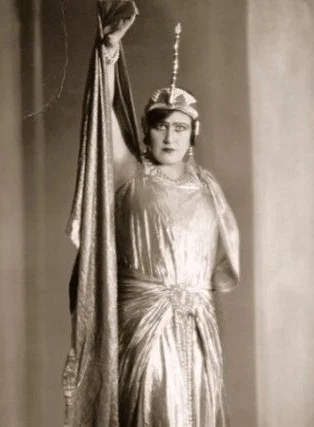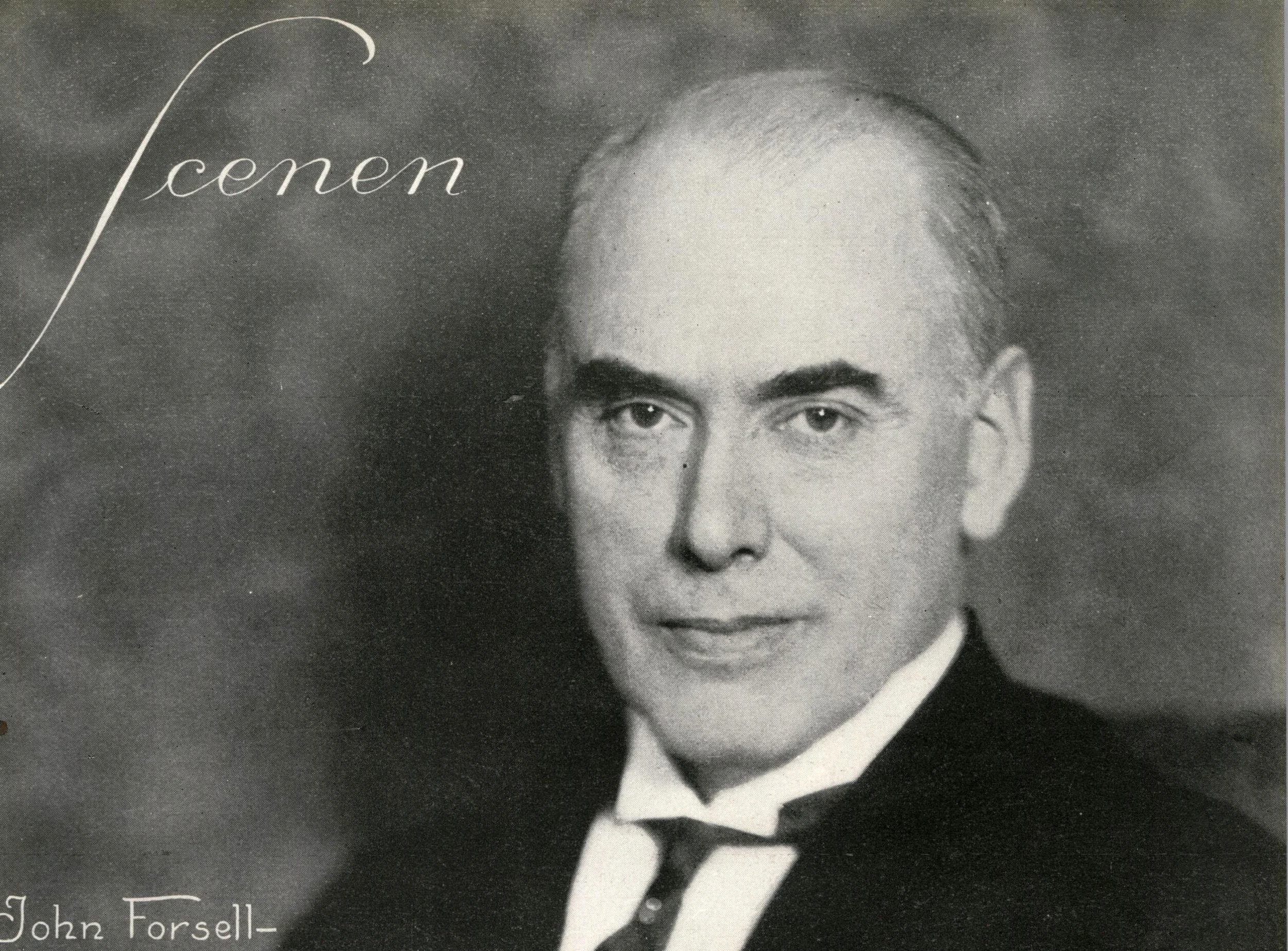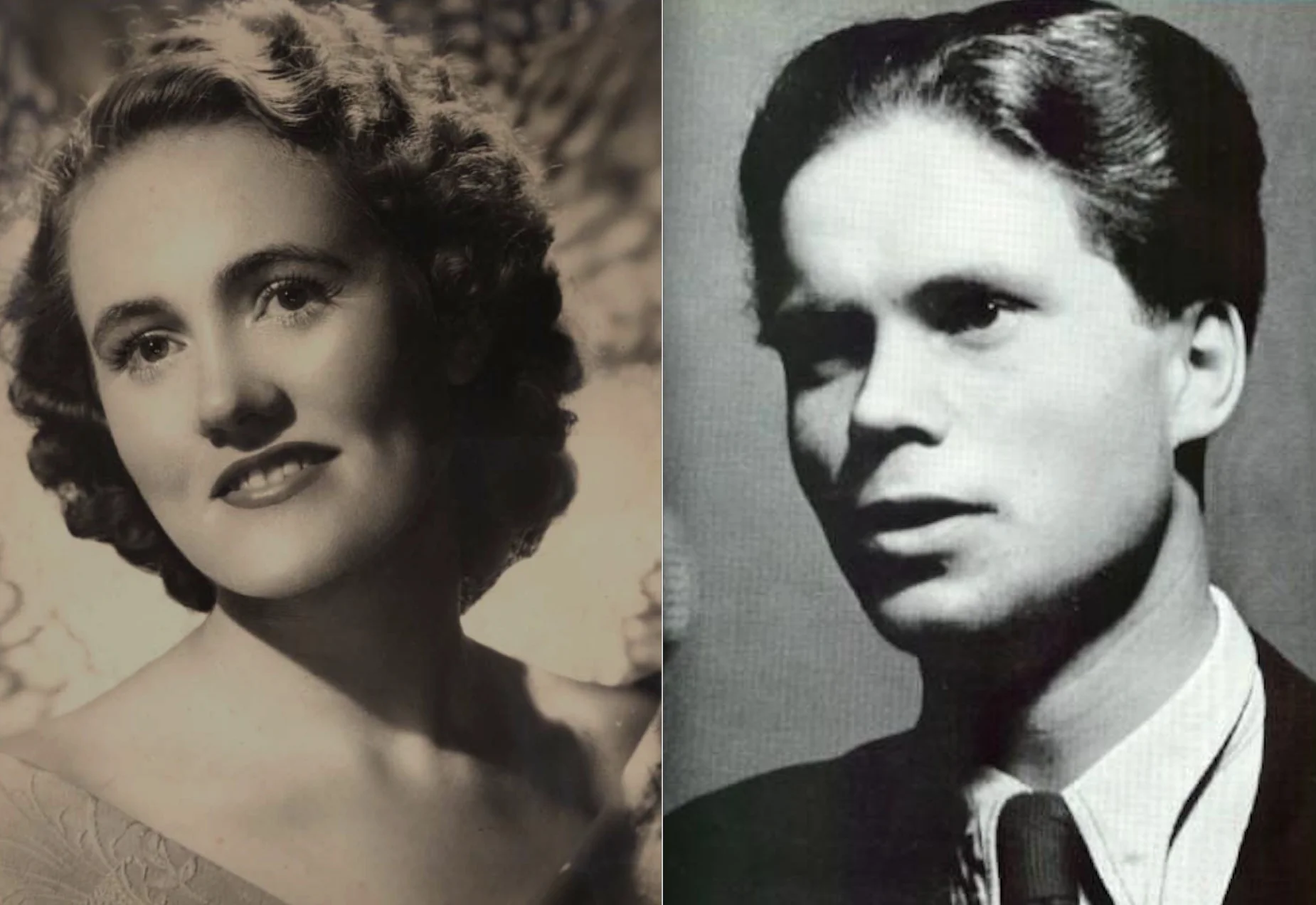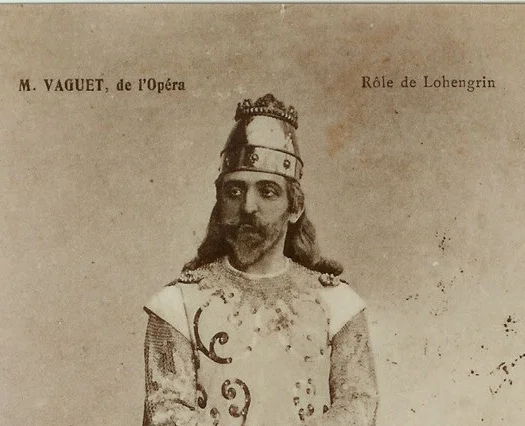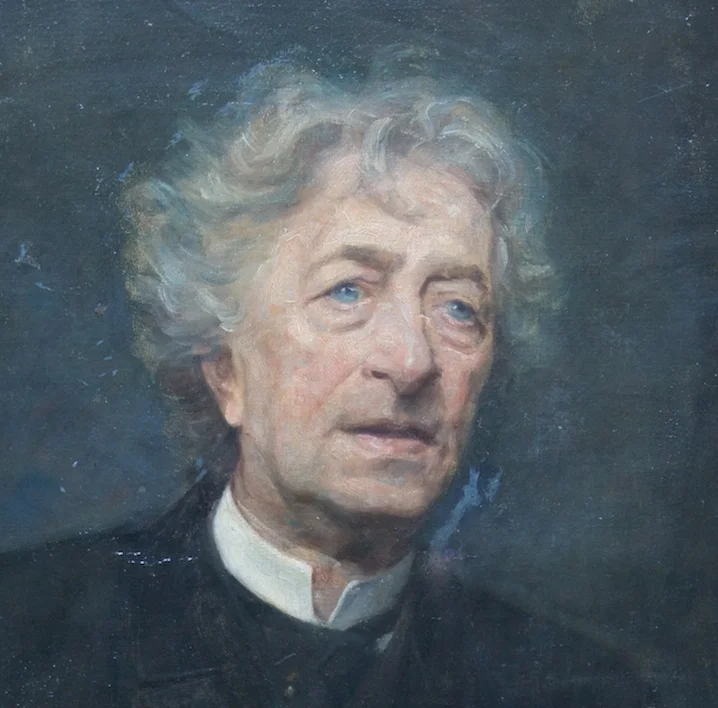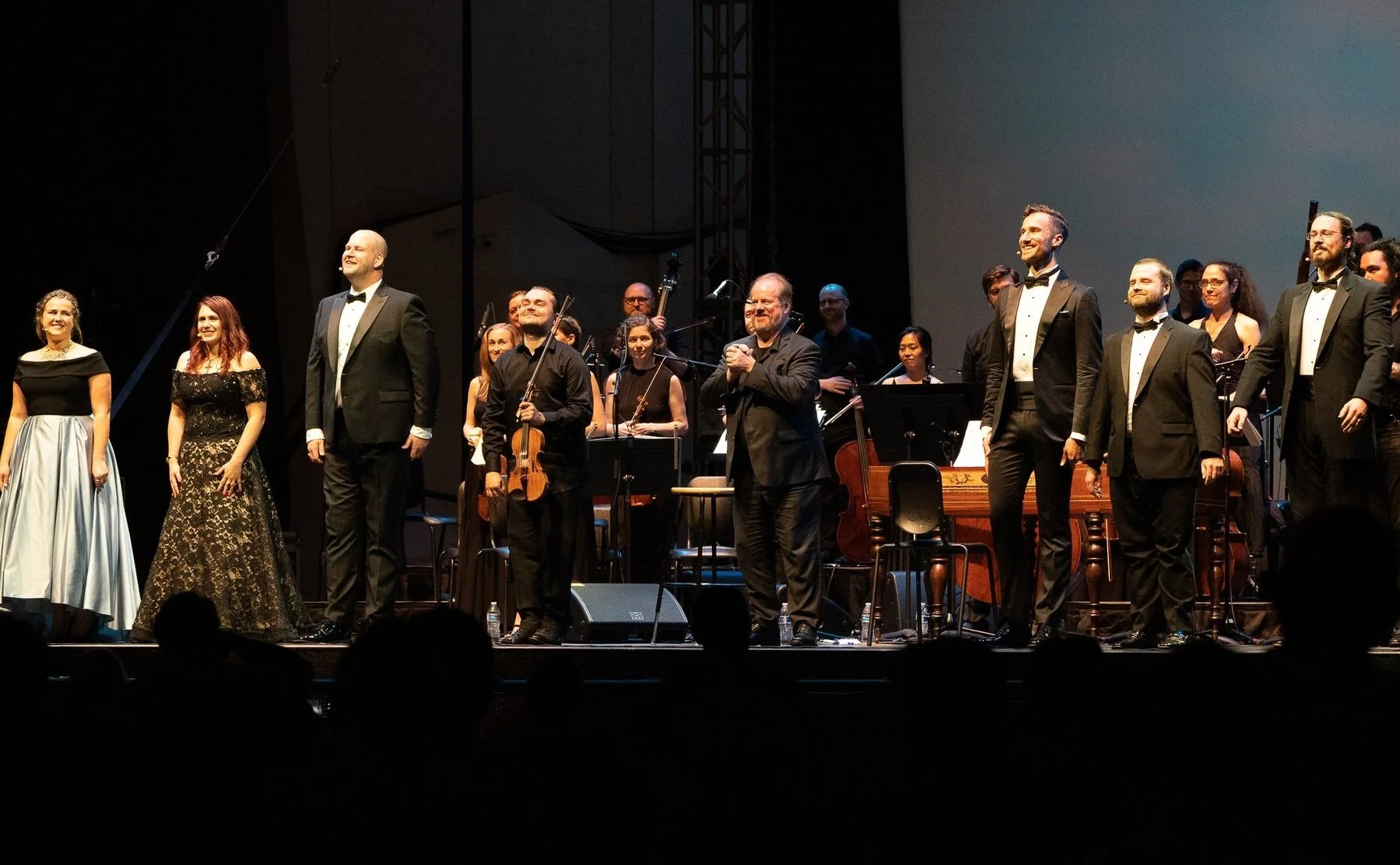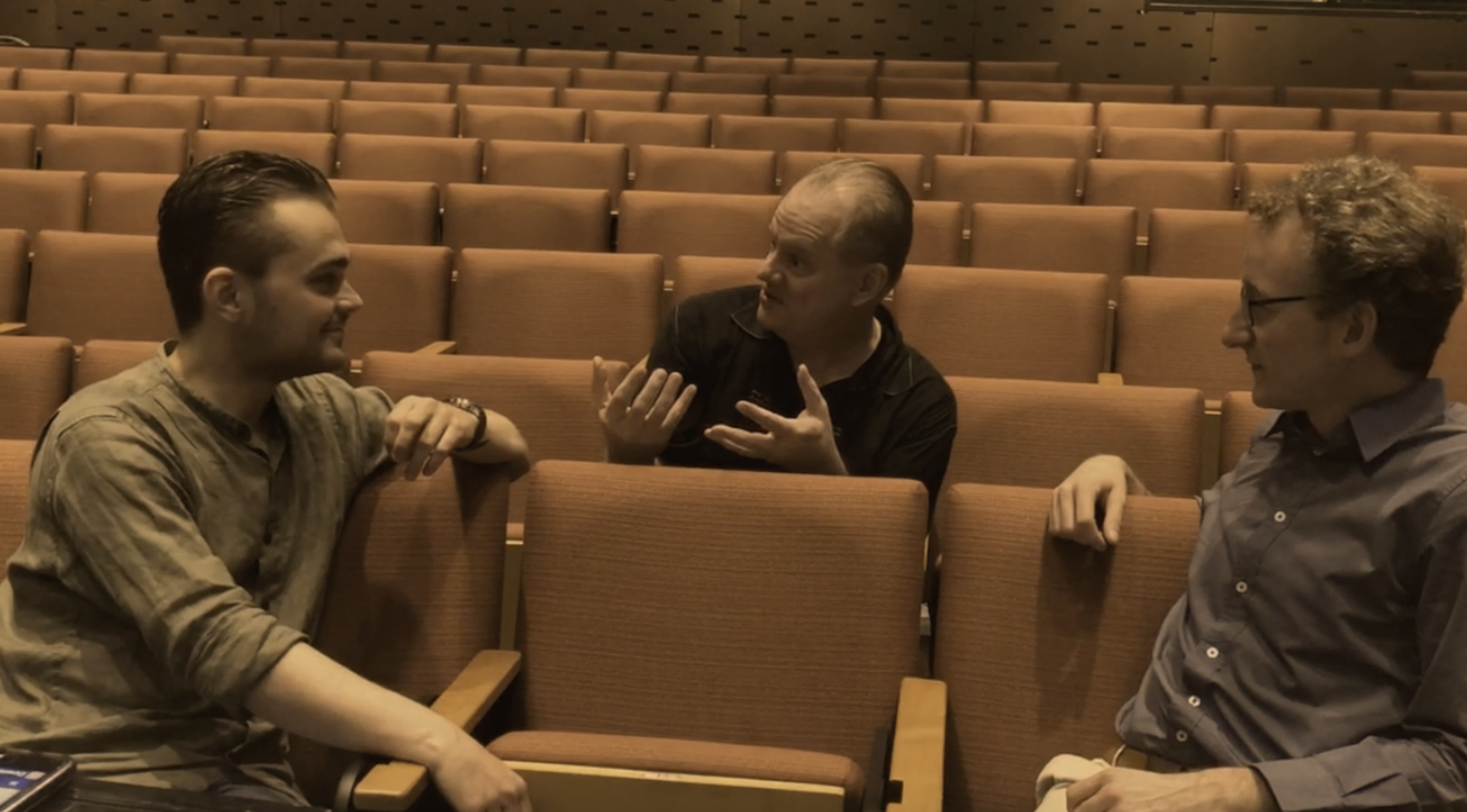Comprimario
Italian theater folk coined just the right term for a certain crucial kind of secondary player. “Comprimario” - not of the principals, but with them, in a way that matters far more than some anonymous courier stepping forward with a letter. Spoletta can’t exactly make or break a Tosca performance the way Cavaradossi and Scarpia can - but if Spoletta is weak or dull, then Cavaradossi and Scarpia can seem at certain moments to be playing in a vacuum, and the show is seriously harmed.
Pini-Corsi as David [Ars et Labor 1908]
Roles like Spoletta flourished as opera gradually moved from alternation of recitative and aria to a continuous symphonic flow. That meant there was now going to be substantive music at the “corners” of the story line, so composers could give a musical profile to the schemers, clergymen, subordinates, bureaucrats, and oddballs who so often impinge there. In Italy there was a tradition of profiling them as tenors, and these characters could serve to support major careers. Piero de Palma and Alessio de Paolis are well-remembered, partly because they lived at the right time to join some iconic complete opera recordings. This week’s record is by their most important predecessor a century ago.
Gaetano Pini-Corsi came from a clan of singers (see ROTW 46 for his brother Antonio, ROTW 62 for his nephew Umberto, and ROTW 52 for their cousin Emilia Corsi). He was born in the Italian city of Zara (present-day Zadar, Croatia) on 15 February 1865, sang his first full-length professional season in Ferrara at 18, and for the next decade and a half was busy in a long list of tenor leads from Manrico, Ernani, and Don Alvaro to Almaviva, Nemorino, and Elvino, mostly in what we might now call “B houses.”
But a turning point came when Toscanini, newly arrived at La Scala, persuaded him to take on David in Die Meistersinger in 1898 and Mime in the Italian premiere of Siegfried on the opening night of the 1899-1900 season. The first was a widely acclaimed success and the second an absolute sensation. The journal Musica e musicisti recalled it a few years later, on the eve of his return to play the corresponding role in Das Rheingold:
The scheming, malignant role of the gnome, despicable to all and to himself, he rendered with spontaneous simplicity, with sincerity of attitude and delivery, one might say perfectly acclimated to the ambience of the drama and Wagner’s music, living the character. A very dangerous character, we must add in praise of Pini-Corsi, because it seems perfectly designed to draw forth exaggerations of action, physical presentation, and accent - things that Pini-Corsi never gives occasion to deplore.
Pini-Corsi as Mime [El teatro, 1901]
For the next quarter century Pini-Corsi was nearly indispensable wherever Siegfried was attempted in the Italian-speaking world; at least ten cities saw him as Mime, several of them in multiple revivals.
From this point forward, he kept his leading-man roles only in a few comic operas, and took on more and more comprimario parts. He played Goro both at the disastrous Scala premiere of Madama Butterfly with Rosina Storchio and its resurrection in Brescia three months later with Salomea Kruszelnicka, and eventually with at least 22 further Butterflies including Bori, Teyte, and Edvina. Goro, Mime, Spoletta, Bardolfo or Cajus in Falstaff, Guillot in Manon, the Abate in Adriana, and L’incredibile in Andrea Chenier kept him going until 1932, so that a man who appeared in his teens opposite Bellincioni, Stagno, and Battistini finished at 67 opposite Pertile, Gigli, Galliano Masini and other tenors not yet born when he was singing their roles.
Pini-Corsi as Goro, autographed postcard
Pini-Corsi made a fairly long list of records between 1906 and 1909. Some are budget-price mementos of the leading roles he had already phased out; in some he features as a utility singer in ensembles. In a precious handful of others, we can hear the qualities that made him so valuable to top-level casts in the second phase of his career. He is a lively, participatory Beppe in the first-ever complete opera recording, Pagliacci under the composer’s supervision. His Guillot springs to life, wearing lechery on his sleeve (but lightly) in a few lines of recitative from Act One of Manon. Corentino, the gullible coward in Dinorah, is sketched with extraordinary energy and color in two extended solo scenes. He is lethal in the tiny role of the moneylender in Leoncavallo’s Chatterton, coolly demanding an assignment of assets just in case the wretched poet should take his own life between today and tomorrow.
The most vivid of all, though, may be a recording that was completely unknown until 2021.
Pini-Corsi when not making faces; undated publicity photo
In a brief “stagione slava” at Milan’s Teatro Lirico in 1905, Pini-Corsi sang the role of the stuttering suitor Vašek in the Italian premiere of La sposa venduta (Prodaná nevěsta, known to us as The Bartered Bride). With him in the cast was Ferruccio Corradetti (see ROTW 6), who recorded one of Kecal’s solos for Odeon shortly afterward. Pini-Corsi, for the same company, sang both of Vašek’s little arias into the recording horn with piano accompaniment - but for some reason they were not published at the time.
However, some years later the German firm of Parlophon acquired old Odeon masters and re-pressed a few of them - and among these were the Sposa venduta arias, though that obscure fact has eluded all cataloguers and discography authors. A copy - the only one ever heard of - turned up on a dealer’s auction list last year, and I alerted a collector friend who bid successfully on it. Here it is, and here’s hoping more unknown Pini-Corsi items (perhaps including Mime?) await discovery.
Teatro Nuovo puts great emphasis on learning from the singers who had never heard, or heard of, microphone singing - primitive recordings from more than a century ago, forming a link to the traditions of opera’s heyday and the infinite potential of the natural, unassisted human voice. Check this space regularly for samples, and click here for some pointers on how to listen.
Postscript: The Bartered Bride, that joyous and beloved cornerstone of the Czech repertory, comes with a built-in problem. It is really not OK, by 21st-century sensibilities, to make fun of a stutterer. Nobody who watched the 2020 Democratic National Convention will forget the courage of Brayden Harrington, the boy who thanked Joe Biden for taking the time to help him in his struggle with their shared disability. This is to be counted as civilizational progress. But in earlier stages of that progress, humor was one of the ways society dealt with the discomforts and tensions of “difference.” Smetana (like Pini-Corsi) played along. If we can manage to see history as the series of stumbles it is, with no particular generation having all the right answers, then it is possible to enjoy their skill while at the same time approving of the changes that make such a role unwriteable today.



































![Image 2 - Henry T. [Harry] Burleigh - Detroit Public Library.jpeg](https://images.squarespace-cdn.com/content/v1/596bb4e703596e837b624445/1591713684327-N7HW488JSZ7EN8T5AJSR/Image+2+-+Henry+T.+%5BHarry%5D+Burleigh+-+Detroit+Public+Library.jpeg)







